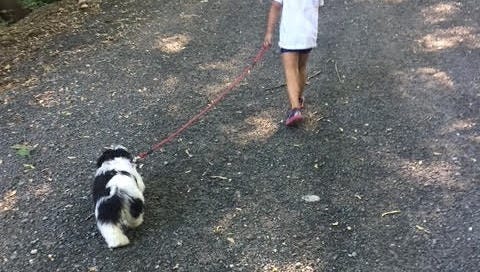I'm so grateful you're reading Research to Thrive By on Substack! My book, The Breakthrough Years is available for purchase here.
At the beginning of the year, a lot of us make New Year’s Resolutions. Or, if you’re in my family, we say “rabbit, rabbit” and make wishes before we say anything out loud in the new year so we’ll be lucky and those wishes will come true.
Making resolutions and wishes tend to involve the more obvious things in life. But I’ve learned from listening to young people in my youth voice studies and from own experiences that small moments matter more.
If our hopes concern our children, their experiences about what makes small moments become big moments matter most of all.
In a study of the children of employed parents I asked children in focus groups what they would remember most from their growing-up years. Parents tended to think their children would remember the extravaganzas —the excursion to Disneyland, the expensive birthday present.
Not necessarily the children. They talked about remembering small moments. One child said she would always remember a time when she once woke up in the middle of the night because she was really hungry. She and her mother snuck down to the kitchen in the dark and had bowls of cereal, muffling their laughter so they didn’t awaken everyone else. That became a secret between them and they planned other midnight adventures to sneak cereal.
Another child said she would always remember an ongoing bedtime story about a cow, a pig, and a chicken. She didn’t like bedtime but it became okay, even fun, when she and her parents took turns adding sentences to this story.
Those small moments became big moments because they had an element of surprise and involved creating quirky family traditions.
In that same study’s survey of a nationally representative group of third through twelfth graders, we asked the children to make one wish to improve the way their parents’ work affects them. When we surveyed parents, they thought their children would wish for more time together.
Not necessarily the children. If they had just one wish, the largest proportion wished their parents would be less tired and stressed. One reason they made that wish, kids told us, was so that their parents could be more emotionally present when they were physically present.
The small moments when their parents were “there for them” became big moments because there were genuine connections.
In another study on the violence in children’s lives, we asked fifth through twelfth graders to suggest one change that would help stop the violence that young people experience. The public discussion about violence—then and now—focuses on extreme violence—such as school shootings—as emblematic of a major societal problem.
Not necessarily the children. The largest proportion of young people in our nationally representative survey wrote about the teasing that goes beyond being playful, about the cruel put-downs and the gossip, and about the rejections as very real violence to them. They wrote that this kind of violence hurts, and they said it triggers bigger violence. In the words of one young person:
“The one thing I would change is gossiping/talking behind people’s back in a negative way. That tends to start 90% of the violence at school.”
Those small moments where there is kindness become big moments.
That’s similar to the way nine through nineteen-year-olds responded in my latest youth voice study for my book, The Breakthrough Years. When we asked the one-wish question again—this time about improving the lives of people their age—the largest proportion wrote about creating a more respectful culture:
“To not belittle or talk about people. Just be nice.”
—Seventeen-year-old boy
“It would be for everyone to treat each other with respect even though you may hate that person.”
—Twelve-year-old girl
The small moment when someone treats another person well—even when they hate that person—becomes a big moment.
Over the holidays, my grandson had an assignment to write a note to someone who’d had an impact on him. He wrote about an experience with me almost eight years ago:
“I remember when I was four years old and our dog Lola was dying. The veterinarian told me that I shouldn't see her before she died. She said I was too young. But you stood up for me. It would have been hard for me not to say goodbye to her.”
That was a big moment for him that became bigger still. I hadn’t remembered standing up for him; I’d just remembered him kissing our Lola.
But his experience distills what I’ve learned about those moments that become big moments. They all involve being listened to and understood when others transcend what they usually do—listened to and understood when you are hungry in the middle of the night; listened to and understood when your parents are stressed out and tired from work; listened to and understood when you are being disrespected by other kids; listened to and understood when you want to say goodbye to your family’s dog.
What I’ve also learned from listening to children is that you never know when these moments might be. And they aren’t all of the time—that’s what makes them special.
In the end what I’ve really learned that in the heat of the moment, I can step back and ask myself, “How will I feel about how I am reacting to this moment in a few months? In a few years” In doing so, I’m more likely to have more of these big moments with my family.
That’s my wish for myself in 2025.






Why am I not surprised that you wrote this piece about the genuine, loving moments of parenting and grandparenting that make a difference. I loved this piece!
If we don't inquire, and inquire well, we'll never know how others have processed and cataloged their experiences with us. Sounds soppy, but is surely correct. Enjoyed the piece and young people's frequently surprising reflections!